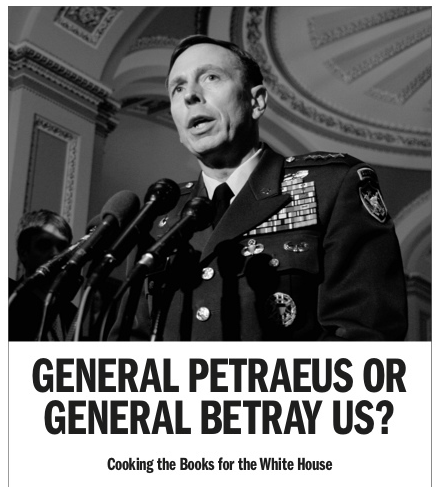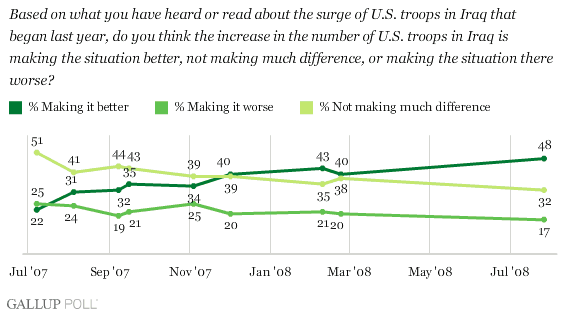
The London Times has reported that the Syrian government had approved the US raid within its borders that it is now protesting--but it's a bit more complicated than that.
The Syrians allegedly gave the OK for US commandos to quietly pop in, kidnap a big al-Qaeda leader operating in Syria (that the Syrians sure as heck don't want there), leave, and interrogate him. Clearly, things didn't go to plan, and a number of Syrians died. Now there are pictures of crying family members all over Middle Eastern news.
What can the Damascus government do? They're already taking a fair amount of heat from the more conservative elements of their state for their Westernization efforts--but they've been smart. Their Westernization has been towards less-antagonizing powers like France, and their joining the MedU has allowed them to work with Israel and the European Union under the guise of economic construction. Syria's ties to the West are important mostly because the US is in Iraq--which Syria isn't terribly thrilled about, anyway.
So the operation got botched, and crying Syrian women are on the news--the Syrians, of course, are going to deny that they let such a terrible thing happen. And sure, they didn't really approve the US coming in and shooting people up, that wasn't part of the deal at all. So the Syrians have protested heavily. They've
closed the US embassy--at least for now. Quietly, they are probably saying, "Sorry, there is nothing else we can do."
But they're also withdrawing troops from the Iraqi border--which is going to make the border more porous. Early in the war, Syria was quite happy to have a porous Iraqi border--their jihadists and extremists all left to fight and die in Iraq, which was quite fine with them (remember,

they're a secular Ba'athist regime). But during the Surge and the Sunni Awakening, Western Iraq became less friendly to al-Qaeda and company--so they all started going back to Syria, so they would have a safe haven from which to conduct operations. Damascus had to finally get troops on the border to prevent arms and men from going out, so that the incentive for bad guys to hang out in Syria would be lower.
Now that the Syrian people are up in arms against the US, the Syrian jihadists are likely to be freshly motivated to go hit the US in Iraq as retribution--so under the guise of diplomatic outrage, the Syrians are quietly letting their jihadists in once more, and they're likely to re-seal the border in a week or two, to make sure that the bad guys don't try to come back after they find that Western Iraq is, once again, not a terribly friendly place to be for terrorists.
The US, obviously, feels somewhat betrayed. Sure, they botched the operation, but to be called out for being "aggressive" or violating Syrian sovereignty, is just untrue. A frustrated Washington is facing an Iraqi parliament using this incident as a new bargaining chip in
sapping more concessions from the US in the extended US-Iraqi security pact. There will certainly be some sort of pact by December--moderate Iraqis and Americans know that neither side can tolerate the pact not happening, but many factions in Iraqi parliament are much more willing to play brinksmanship with the pact and get concessions for their particular party/sectarian group--all they need is just enough diplomatic legitimacy to do it, and the Syrian raid incident has given it to them; the US military will ultimately bear the brunt of this foul-up.
But the Syrians did make one mistake. If it's clear to US allies that Damascus gave the go-ahead for the raid, then US allies that Syria depends on are likely to make Assad's life difficult. For example: The UK quickly canceled a joint conference in London with the Syrian government after the raid--a confusing move at the time, but one likely meant to show Syria that London is not as quick to sell out Washington as Damascus may be. More importantly in the long-term, the ascent of Sarkozy in France has turned Paris into a strong Washington ally (and Bush ally, even). As head of the Mediterranean Union, and the key to Syria's entry into the Western fold, Sarkozy's voice has a lot of sway in Damascus.
Nothing terribly decisive is likely to happen until Bush is out of office, and puzzle pieces can't really fall into place until the Israeli election happens, either. But the decision in Damascus to sell out the US to keep itself from facing heat domestically is likely to have unforseen diplomatic consequences, for both the US and the Syrians, independently of each other. All in all, it was probably a bad decision. The Syrians could have claimed that there was a miscommunication, and that the US had mistakenly come over the border. Clearly, Damascus can't admit that it gave the US the go-ahead to enter Syrian territory, but to put the maximum possible blame on the US was not necessary to save face. If Damascus wants to Westernize, it needs to be able to take a stand with the friends it wants to make, and not sell them out at first convenience. Friends don't always get along, and the US in particular is a friend with liabilities in the region. But it comes with the territory--one has to take it or leave it.
 Iraqi Government Provincial Control, Updated for Jan 2009 (US DoD)
Iraqi Government Provincial Control, Updated for Jan 2009 (US DoD)




























